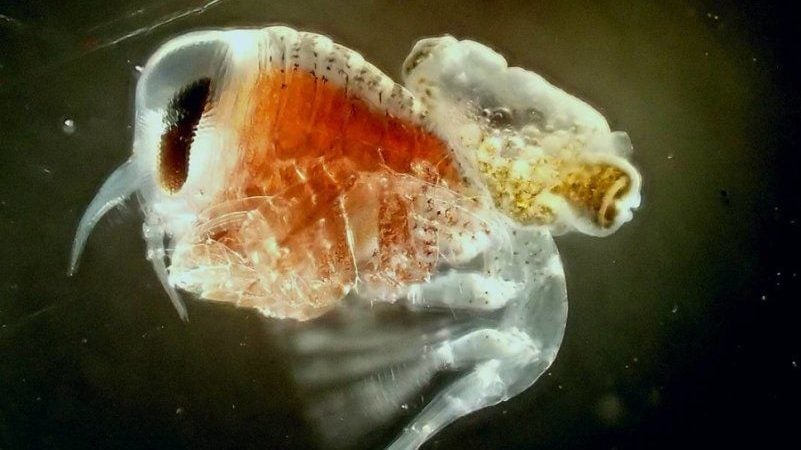These underwater kidnappers wear sea snails like backpacks
There are criminals in the Southern Ocean. As deep as 470 meters below sea level (1,540 feet), tiny shrimp-like crustaceans are kidnapping sea snails and wearing them like knapsacks.


There are criminals in the Southern Ocean. As deep as 470 meters below sea level (1,540 feet), tiny shrimp-like crustaceans are kidnapping sea snails and wearing them like knapsacks.
Hyperiella dilatata and antarctica are underwater amphipods, no longer than a watch’s minute hand. They spend their lives floating around near Antarctica, trying to avoid being gobbled up by fish and other predators. It’s here that the hapless sea snails come in: These pea-sized pteropods leach a potent chemical cocktail that serves as a deterrent to hungry passersby. In a new study published in the journal Marine Biodiversity, biologists from the Alfred Wegener Institute and the University of Bremen observed the amphipods, which are immune to the sea snails’ toxins, pulling the snails onto their backs as a kind of shield against predators, and holding them in place with two pairs of their tiny legs.
For the amphipods, it’s an ideal solution: Cod icefishes and other predators quickly learn that shrimp with a sidecar don’t taste very good, and so avoid eating them. Though it’s not known whether different amphipods favor particular species of pteropod, they seem to barely discriminate, enthusiastically snatching snails up to half their own size, as well as females with a clutch of eggs.
For the pteropods, however, it’s very bad news. Completely unable to forage for food, they often starve to death on their kidnappers’ backs. (In a grisly twist, the shrimp continued to cling on to the sea snails after they have died.)
Not every amphipod embraces a life of crime. Of the 342 collected by researchers, only four individuals had snails on their backs—a merciless display of survival of the fittest, on a teeny-tiny scale.